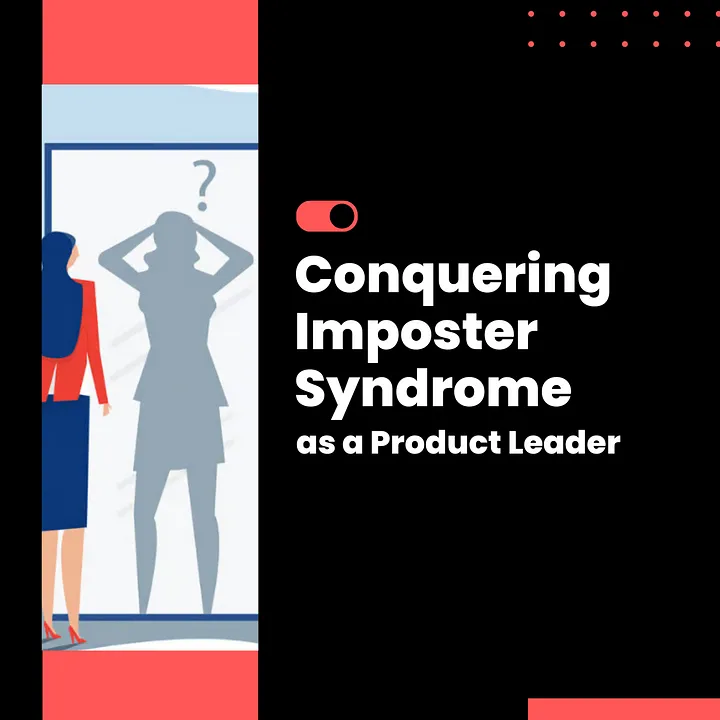
Breaking Free from Imposter Syndrome: Practical Steps for Product Leaders
As a product leader, managing product managers can be a challenging and stressful role. The pressure to meet and exceed the expectations set by management and stakeholders can lead to imposter syndrome. Imposter syndrome is the feeling of inadequacy or self-doubt, despite having the qualifications and experience to succeed in your role. This syndrome is prevalent in product management, and it is important to recognise it and overcome it.

Why does imposter syndrome seem to occur so frequently in product management? One reason is the high expectations placed on product managers, which can create a lot of pressure and stress. Product management is a critical role that bridges the gap between company strategy, development, customers, sales, and many other stakeholders. Product managers must be experts on the product and the market, reciting the needs of customers in their sleep. They must carry the company with them through their product vision while also facing the harsh reality of product defects, strong competition, and customer complaints — solving problems and sorting things out along the way.
Another reason for imposter syndrome is the ambiguity and fluidity of the product management role. There are dozens of views on what product managers actually do, and it can be confusing and cause uncertainty for those in the role. This lack of clarity can contribute to imposter syndrome as product managers struggle to define their role and responsibilities.
One of the key challenges for product leaders is overcoming their own imposter syndrome. Despite having years of experience and success, product leaders can still feel like they are not qualified or competent enough to succeed in their role. This feeling of inadequacy can be heightened when managing product managers who are also experiencing imposter syndrome. It can be difficult to provide guidance and support when you are battling your own internal doubts and fears.
In my opinion, setting realistic expectations is the most important practical step for avoiding imposter syndrome in product leaders. By setting realistic expectations, product leaders can reduce the pressure and stress of the job, and acknowledge that it is okay to make mistakes and learn from them. This can help to build confidence and reduce feelings of self-doubt and inadequacy.
So, how can product leaders overcome their own imposter syndrome and build confidence in their role? Here are some practical steps:
- Set realistic expectations: It’s important to set realistic expectations for yourself and your team. Understand that it’s okay to make mistakes and that failure is a part of the learning process.
- Stay organised: Product leaders have a lot of responsibilities, and it’s easy to feel overwhelmed. Staying organised can help to reduce stress and increase productivity. Consider using tools like calendars, task lists, and project management software to stay on top of your work.
- Focus on your strengths: Everyone has strengths and weaknesses. It’s important to focus on your strengths and use them to your advantage. This can help to build confidence and reduce feelings of imposter syndrome.
- Practice self-care: Product leadership can be a demanding and stressful job. It’s important to take care of yourself both physically and mentally. This can include activities like exercise, meditation, or spending time with loved ones.
- Celebrate your team’s successes: Product leadership is a team effort, and it’s important to celebrate the successes of your team. Recognise and appreciate their hard work, and take pride in the accomplishments of the team.

By setting realistic expectations for yourself and your team, focusing on your strengths, staying organised, practicing self-care, and celebrating your team’s successes, you can reduce the risk of imposter syndrome and build confidence in your role as a product leader. Remember, it’s okay to make mistakes and learn from them, and setting realistic expectations can help to reduce the pressure and stress
References:
- Think Again by Adam Grant https://www.goodreads.com/book/show/55539565-think-again
- Reforge Product Leadership
https://www.reforge.com/programs/product-leadership - Special Thanks to the Reforge Alumni and Reforge EIR Ravi Mehta on answering questions related to Imposter Syndrome in Reforge Discussion Forum. (The discussion inspired me to write more on this topic)